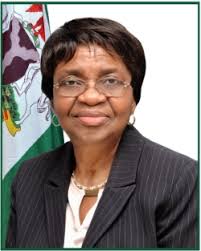The Director-general of the National Agency for Food and Drug Administration and Control (NAFDAC) has advocated for more support and funding for herbal medicine.
The call was made in a statement signed by the Director-General (DG) of the agency, Prof. Mojisola Adeyeye, which was obtained by the News Agency of Nigeria (NAN) on Sunday in Abuja.
The statement said that the DG made the call at an inaugural symposium and launching of the Africa Centre of Excellence for Drug Research, Herbal Medicine Development and Regulatory Science (ACEDHARS) at the University of Lagos.
Its theme was “Drug Development from African Medicinal Plants: Opportunities, Challenges and Regulatory Approach”.
Adeyeye said that the support for research by way of funding and development of herbal medicine would help to meet the desire for universal health coverage for all.
Adeyeye said that investment in herbal medicine research and development would positively impact the economy of the pharmaceutical and traditional medicine industry.
According to her, herbal medicines are very important to healthcare delivery and can contribute significantly to universal health coverage in the country.
“Despite the widespread use, traditional medicines have not yet been integrated into the national healthcare system of many developing countries, including Nigeria.
“The increasing use of herbal medicine despite general lack of research on some of these products is a call for concern.
“Investment in herbal medicine research and development is needed from all stakeholders, including the government, so we can benefit from whatever God has given to us freely,” she said.
Adeyeye said that ACEDHARS is very important to Nigeria because of the focus on the development of herbal medicine for the use of the people.
The DG said that the centre would function to ensure that adequate research was conducted and clinical trials done on herbal products before usage.
According to her, some herbal medicines get to the market without adequate research and clinical trials to confirm their safety and efficacy.
Adeyeye advised herbal medicine practitioners to take advantage of the centre to increase their knowledge in the practice, saying that herbal practitioners must have continued education, even where they had it before.
She said that the centre would be of immense benefit to those who don’t have knowledge in the practice which would as well expand their horizon.
She also called on those who don’t have the knowledge to embrace the programme in order to acquire basic education requirements to practice.
The statement also quoted Prof. Oluwatoyin Ogundipe, Vice-Chancellor, University of Lagos, as saying said that there is the need to tap into the indigenous knowledge of herbal practitioners. Ogundipe was represented at the event by Prof. Obinna Chukwu, Deputy Vice-Chancellor, Management Services.
Ogundipe described the symposium as timely in examining the challenges, opportunities as well as regulatory approach for drug development from Africa medicinal plants.
“We must appreciate the fact that the herbal medicines we have are quite efficacious and there is the need for us to tap into the indigenous knowledge.
“Some herbal medicine are quite useful in addressing a number of ailments but the problem is that some of these medicines had been seen as a cure for all ailments which the Yorubas call “gbogbo nise”.
”The issue of quality control, proper identification of medicinal plants, standardisation of active ingredients and chemical compounds in herbal medicine need to be addressed.
“We are also looking forward to a period where modern technology will be applied in herbal medicine research,” he said.
Also in an address Omobolanle Ade-Ademilua, Director/Centre Leader, said ACEDHARS, which was a World Bank approved centre of excellence, was established to train skilled manpower.
Ade-Ademilua said the training includes quality assurance, standardisation of dosages, reproducibility of herbal preparations and safety monitoring of drugs in West and Central African region.


